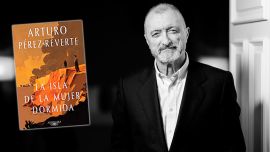José 'Pepe' Mujica, the former left-wing guerrilla who spent more than a decade in prison before becoming president of Uruguay and making it the first country in the world to legalise cannabis, has died. He was 89.
President Yamandú Orsi confirmed Mujica’s death on social media, writing, “Thank you for everything you gave us and for your profound love for your people.”
Diagnosed with oesophageal cancer in April 2024, Mujica had said he was ceasing treatment after it spread to his liver, the weekly newspaper Busqueda reported on January 9.
During a Presidency that lasted from March 2010 to March 2015, Mujica became famous for the austerity of his lifestyle. He typically drove to the presidential offices from his small farmhouse on the outskirts of Montevideo in an old Volkswagen Beetle. He donated most of his salary to charity, earning him the title of the world’s poorest president.
His government won recognition for its progressive legislation on issues such as legalising abortion and gay marriage, as well as putting Uruguay on the path to becoming a regional leader in wind energy. His administration resettled scores of Syrian refugees and struck a deal with US president Barack Obama’s administration to take six inmates who had been held for more than a decade at Guantánamo Bay in Cuba as suspected terrorists.
Mujica supported the bill that legalised marijuana in December 2013, putting Uruguay at the forefront of a global movement. He pitched the legislation to his sceptical countrymen as a way to starve drug gangs of money and an opportunity to turn Uruguay into a magnet for cannabis investment.
A rapid recovery in commodity prices after the 2008-2009 global financial crisis helped Uruguay’s economy log average annual growth of five percent during Mujica’s term, boosting his popularity.
He was known as well for plain talking and gaffes. Not realising he was speaking into an open microphone at a press conference, he created a diplomatic flap in 2013 when he said Argentina president Cristina Fernández de Kirchner was worse than her “cross-eyed” husband, a reference to former president Néstor Kirchner.
Humble roots
José Alberto "Pepe" Mujica Cordano was born on May 20, 1935, into a poor family in the capital city of Montevideo.
In the 1960s, he joined the Movimiento de Liberación Nacional-Tupamaros movement, which waged a violent insurgency against the democratic governments of the time. He was arrested several times, received multiple bullet wounds and once managed to tunnel his way out of prison with other prisoners.
Detained for the last time in 1972, he spent more than a decade languishing in jail under a military dictatorship that ran the country from 1973 to 1985. In a 2020 speech, he recounted spending six months with his hands tied behind his back with wire, days sitting in his own filth, and two years bathing himself with a rag dipped in a cup of water.
“I’ve experienced everything in this life, but I don’t hate anybody,” he said.
He served as a senator and as the nation’s agricultural minister before seeking the presidency, pledging to improve education, reduce poverty and fight crime. In the November 2009 election, he defeated ex-president Luis Alberto Lacalle to become Uruguay’s 40th president.
Mujica was a member of the so-called "Pink Tide" of left-wing presidents– others were Fernández de Kirchner in Argentina and Hugo Chávez in Venezuela – that came to power across South America in the early 21st century, when China’s insatiable demand for raw materials fueled an unprecedented economic boom in the region. Mujica welcomed foreign investment and eschewed the populist economic policies espoused by Fernández de Kirchner and Chávez that eventually impoverished their countries.
Mixed legacy
Despite his global popularity, critics said Mujica left a chequered legacy at home by doing little to address shortcomings in public education while saddling his successor with bloated government pay-rolls and high deficits.
Mujica’s decision to name a politically connected medical school dropout to run the state-run oil company led to US$1.4 billion in losses and bailouts. Plans to build a new deepwater port and an LNG regasification terminal ended in failure.
His signature cannabis law has yet to deliver the avalanche of investment and exports its backers promised, while violent drug gangs are more powerful than ever.
Still, Mujica consistently ranked as one of Uruguay’s most popular politicians. After leaving office, he served as a senator until October 2020.
He remained active in politics and exerted significant influence within the Frente Amplio as the last surviving member of a triumvirate of left-wing leaders who led the party out of the political wilderness to run the country from 2005 to 2020. Mujica was known as a voice of moderation within the Frente Amplio and maintained constructive relations with the opposition.
He was married to Lucía Topolansky, another former Tupamaro militant, who served as a senator and as vice-president from 2017 to 2020.
related news
by Ken Parks, Bloomberg
























Comments